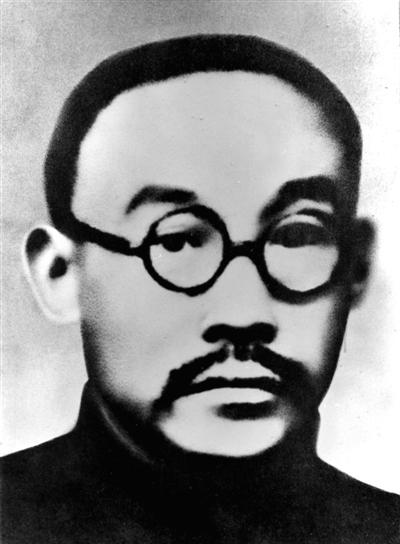Source: People's Daily - People's Daily

Ho Shu Heng statue. Xinhua News Agency
Changchong Village, Ningxiang, Hunan Province, is built on a mountain, surrounded by pines and cypresses, and He Shuheng, a major representative of the Communist Party of China and one of the founders of the Communist Party of China, was born here.
In 1876, He Shuheng was born into a peasant family, and he worked hard since he was a child. In 1913, at the age of 37, He Shuheng was admitted to the Hunan Provincial First Normal Training Workshop. Here, He Shuheng met Mao Zedong, and the two had similar interests and formed a deep friendship. In April 1918, He Shuheng, Mao Zedong and others initiated the establishment of the Xinmin Society, and in 1920 jointly initiated the establishment of the early Communist Party organization in Hunan.
In July 1921, Mao Zedong and He Shuheng went to Shanghai as hunan delegates to attend the First National Congress of the Communist Party of China. In October, He Shuheng participated in the formation of the Hunan branch of the Communist Party of China and served as a member of the branch. On May 21, 1927, the Ma-Ri Incident occurred in Changsha. Despite the danger, he went to Shanghai via Changsha to set up an underground printing factory for the party and persisted in a secret struggle.
In 1928, after the conclusion of the Sixth National Congress of the Communist Party of China, He Shuheng entered the Moscow Sun Yat-sen University with Xu Teli, Wu Yuzhang, Dong Biwu, Lin Boqu and others. At that time, He Shuheng was more than fifty years old, but in order to study revolutionary theory, he worked very hard and eventually learned Russian.
In November 1931, He Shuheng entered the Central Revolutionary Base Area and was elected as a member of the Central Executive Committee of the Chinese Soviet Republic, serving as a provisional central government workers' and peasants' procuratorial people's commissar, acting minister of the Ministry of Internal Affairs, and chairman of the provisional Supreme Court. In his work, he insisted on seeking truth from facts, paid attention to investigation and research, treated his work meticulously, and often went to various places in the Soviet Union to investigate. During the investigation, He Shuheng would carry "three treasures": cloth bags, notepads and flashlights to facilitate recording and night walking. In October 1934, after the Long March of the main force of the Central Red Army, He Shuheng was ordered to stay in the central revolutionary base area and persist in guerrilla warfare.
On February 24, 1935, on the way from Jiangxi to Fujian, He Shuheng died heroically in the Battle of Changting, at the age of 59, he used his life to fulfill the Zhengzheng oath of "I will shed the last drop of blood for the Soviets".
Today, more than 50,000 party members come to Changchong Village every year to visit He Shuheng's former residence. According to the relevant local person in charge, the red resources will be fully excavated, the revolutionary spirit of He Shuheng will be inherited, and the development and benefits of the masses will be promoted through the development of red tourism.
People's Daily ( 2021-05-07 04 edition)